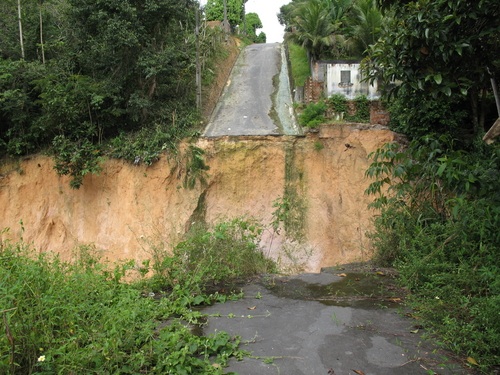- A “phisher” looking to gain access to people’s banking details managed to upload a malicious app to the app store for Google’s Android smart phone (which is Google’s answer to the iPhone). And while it was quickly removed once discovered, this brings into question whether or not Google needs to be more stringent on the apps it allows into the Android Marketplace. “The rogue Android application posed as a legitimate banking applet, but was actually designed to trick marks into handing over bank login details to fraudsters, an alert by credit union First Tech warns. The credit union, which said it wasn’t targeted by the attack, doesn’t even have an app for Android as yet.” And the macro-level threat here is, of course, the vulnerability of smart phones, which are increasingly becoming indispensable web portals for millions. Many expect similar attacks to rise in 2010.
- In a candid Wall Street Journal interview this weekend, Hank Greenberg questioned the terms of the AIG bailout and instructed journalists to start looking deeper into Goldman Sachs’ actions before the financial collapse. “There’s too much smoke, too many smart people asking questions that deserve an answer. I would hope that investigative reporters do the job they love to do and bring out the truth. I would hope that Congress would then say we must do something about this in all fairness.
buy bactroban online www.clerkenwellislingtonclinics.co.uk/wp-content/uploads/2023/10/jpg/bactroban.html no prescription pharmacy
The American people should know about this and then bring about the changes necessary to avoid the total destruction of a great company that was the pride of America in the insurance industry.
buy zoloft online www.clerkenwellislingtonclinics.co.uk/wp-content/uploads/2023/10/jpg/zoloft.html no prescription pharmacy” Hank would seemingly be the first in line among AIG shareholders to file a class-action lawsuit to recoup all the losses that have (in his view, unfairly) occurred since the Fall of 2008, but — for now at least — he isn’t going that far. He has, however, presented the Fed with a plan in which AIG’s “$112 billion loan [would be] stretched out to, say, 20 years and the interest rate slashed to something closer to the government’s own cost of borrowing.” Good luck with that.
- The Basel Committe on Banking Supervision has identified several areas that it must address in more depth, including coming up with more concrete principles to help replace International Accounting Standard (IAS) 39. And that might prove contentious. “This could put regulators on a collision course with the International Accounting Standards Board (IASB), which published proposals for consultation on November 5 to replace the incurred loss model with an expected loss model as part of the overhaul of IAS 39.” You know what that means? ACCOUNTING FIGHT.
- A look at Philippe Jordian’s new paper “Risk Management Lessons from the Financial Crisis,” which focuses on how risk management’s job is not to avoid losses, but to “convert unknowns into ‘known knowns.'”
- A man who was pretending to be a rock concert promoter was indicted for running a Ponzi scheme. “According to the indictment, [Miko Dion] Wady operated and had an ownership interest in various business enterprises that purportedly were engaged in the business of promoting concerts or tours of well known entertainers and artists.”The indictment alleges that Wady and others misled victim investors into believing that Wady entered into performance contracts and other business arrangements with nationally and internationally known entertainers, arranged performance venues throughout the world, and greatly profited by putting on these concert or tour events. The indictment alleges that from 2004 through 2007, Wady claimed to have promoted concerts for The Rolling Stones, U2, Barbara Streisand, Faith Hill, Tim McGraw, Mariah Carey, George Strait, Billy Joel, Jamie Foxx, Jimmy Buffet, Mary J. Blige, Pearl Jam, and at least 30 other well known artists and entertainers.
buy advair rotahaler online www.clerkenwellislingtonclinics.co.uk/wp-content/uploads/2023/10/jpg/advair-rotahaler.html no prescription pharmacy
Also according to the indictment, during this period, Wady appears to have actually promoted fewer than 10 concerts, all involving only local or lesser known artists.”
Find an interesting link? Email me any stories, videos or images you come across. Or just follow me on Twitter @RiskMgmt to pass along the news.



